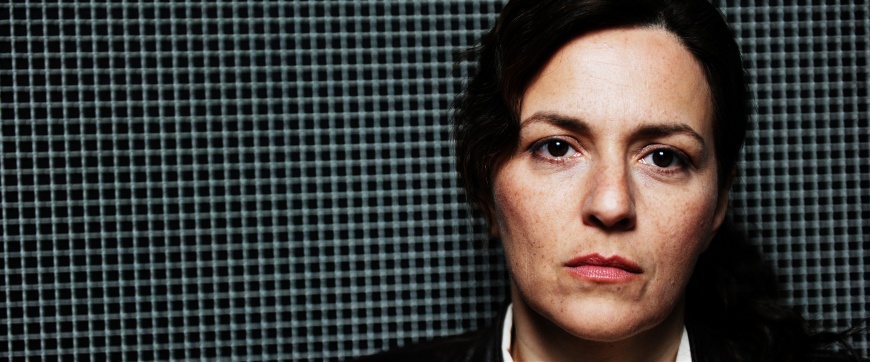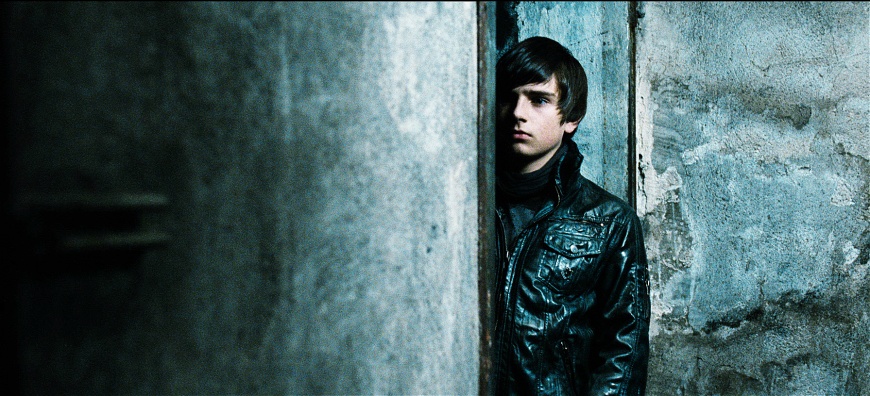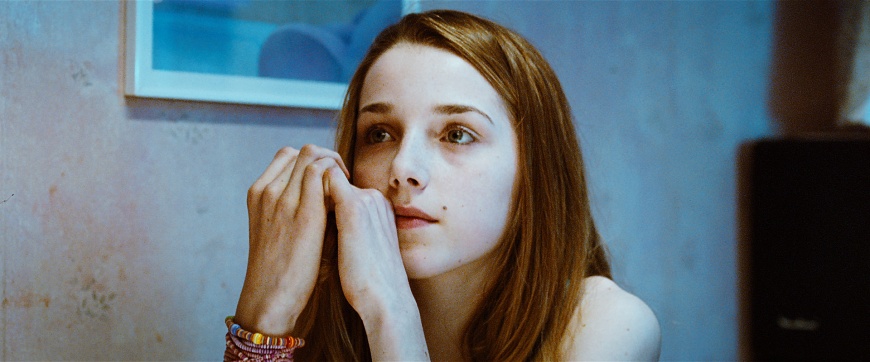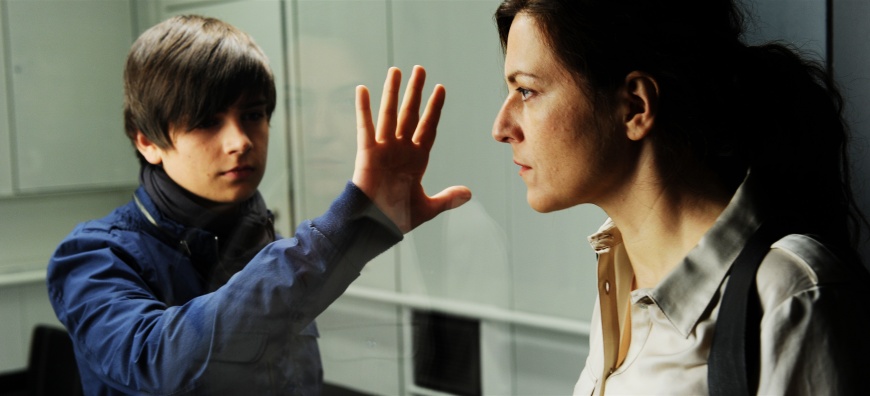Interview with the Director
Was there a trigger for this story, a real hook?
I was standing in the subway in Cologne. It was obviously the end of school, because the platform was full of children and their voices were between 10 and 12 years old. One girl stood aside, alone, she looked different from the others, a little too short skirt, high shoes, heavily made up, but very trendy. She looked strange, her body was still a child, but her style was totally sexy. Somehow she noticed that I was watching her and I had the impression that she liked it. She came up to me and talked to me. To be honest, I was a little embarrassed, she was pretty direct. Then she asked me if I could give her a cigarette. I said "no", but she didn't let up and her voice was always a bit too soft, so I had trouble understanding her and she had an excuse to come closer. Then her train came and she was swallowed by the other kids. The train left and I realised that I had been flirted at by an 11-year-old child. I found the encounter irritating and started to ask myself more and more questions about this girl and that is how Mathilda came to be. This moment when children don't know what they are doing, but they can do it, has a fascinating and irritating effect on me: a child who tears the legs off a spider without a care in the world. The child may have the strength and the power to do it, but it still has no awareness of its victim and the consequences of its action. There is an irritating force in this tension between "ability" and "not yet knowing". What happens when this force gets out of control? When these children can no longer be stopped? A mixture of "Lord of the Flies" and "Clockwork Orange". When our children turn against the adult world and take revenge for all the neglect and broken promises of their parents?
Are there any cinematic role models for BASTARD, aesthetically or in terms of content?
Sergio Leone's Western. This pure precision in narration, crystal clear shots in which looks, editing and dialogue are in rhythm. This "look-tennis", that's what inspired us. Scenes like the "Execution" or the "Who am I? - Play", we wanted to tell a story, like a western showdown, shimmering tension until it pops. In the genre BASTARD is deliberately sitting between the chairs, a bit like a pubescent teenager stubbornly resisting every category of the adult world. We wanted an aesthetic that corresponds to the world of the kids we tell about: their tastes, their attitude to life, their colours and their music. BASTARD is our "Trojan Horse" with which we also want to reach the kids who would otherwise not deal with our subject. As debutantes we had the freedom to defy genre conventions or the demands of a broadcasting station. We suspected somewhere, this will be the last film in which we can try out so naively and freely, because after BASTARD we will have grown up.
What motivated you to make your first long film on such an intense topic?
A debut film in Germany is a privilege, because it allows enormous freedom in terms of content and form. We wanted to make the most of this freedom and tackle a challenging and uncomfortable topic. Against limited resources, we set our sights on creating high-quality cinema nonetheless. Creativity needs resistance.
Do you think that children today are more likely to lose their emotional balance than previous generations?
Growing up is always dangerous, every generation has its risks. I am afraid to judge trends in society as a whole, I find "our society" too heterogeneous for that. BASTARD tells the story of two children who miss something existential, let's call it love or recognition. They feel that they cannot live without this recognition and decide to take it by force. For me, the search for recognition and identity is one of the main causes of violence. In this sense BASTARD is not only a story about two children in search of love, but also a "little story about violence".
How do you get children to move in a dark world as actors without harming them?
The joy of playing. Kids play, nobody can do it like them. Especially since Markus Krojer (Leon) already had a lot of film experience ("Wer früher stirbt ist länger tot"). We created a playground for our actors, the children and the adults. The film process sets the boundaries and determines the stage, we discuss the rules of the game and then we start playing. Making films is sometimes exhausting, but it's also a hell of a lot of fun. As long as it is clear where fantasy begins and reality ends, it is probably easier for children to wander between worlds than it is for us adults. During the entire shooting "our children" were accompanied and intensively supervised by two pedagogues. They were also available to the children and their families as contact persons beyond the actual shooting and had an eye on the children finding a good way back from the sometimes crazy film circus into their normal lives. The movement between these two worlds is usually the real challenge, as every filmmaker knows.
Your film screened as the opening film at the Hofer Filmtage in front of a very interested and demanding audience. How do you feel about this positioning?
It was a great honour for all of us to be allowed to have the opening film in Hof, especially since we already had the chance to be present in Hof with "Der blaue Affe" and "Zahme Vögel". Heinz Badewitz' film programme inspires me very much and the atmosphere at the Hofer Filmtage is likeable and pleasantly calm. I was also impressed by our screenings at the Museum of Modern Art in New York. To develop the look for BASTARD, we looked for role models in art. We were particularly inspired by the graphics of Tara McPherson, the photographs of Lillian Birnbaum and the works of Balthus. Laurence Kardish, film curator at the MoMa, sees his cinema as a gallery, and when we were allowed to show BASTARD on the MoMa screen, I had the feeling that we were returning our film to its visual origins. It was also a moving moment for me when we were in Afghanistan as part of the research for our follow-up project "Radio Zhora" and showed BASTARD to German soldiers at the camp "Marmal in Masar-e Sharif". Far away from home and their families, the film had a very special and touching effect on the soldiers.







